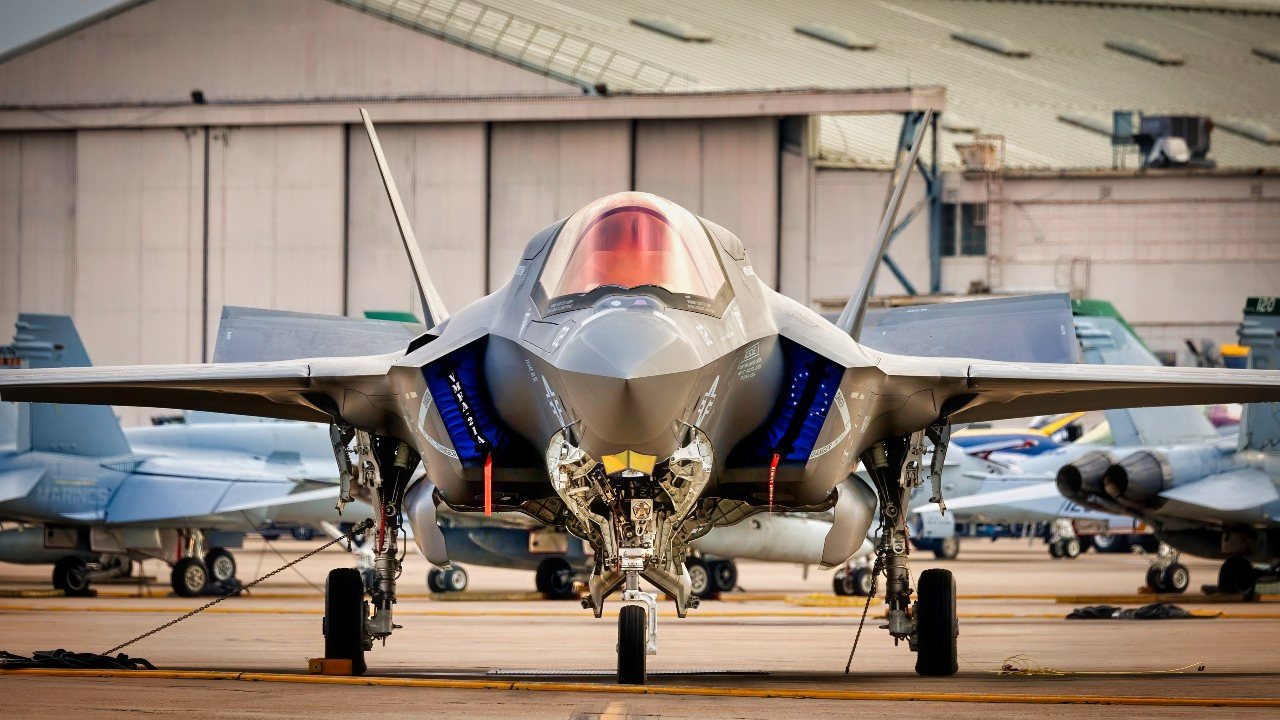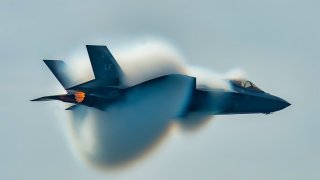F-35 Fighters to Saudi Arabia? Pros and Cons and Why It Could Happen
The U.S. and Saudi Arabia are nearing a defense pact that would strengthen their military cooperation and limit Chinese influence in the region. This agreement could also lead to Saudi Arabia acquiring advanced U.S. weapons, including potentially the F-35 stealth fighter.
Summary: The U.S. and Saudi Arabia are nearing a defense pact that would strengthen their military cooperation and limit Chinese influence in the region. This agreement could also lead to Saudi Arabia acquiring advanced U.S. weapons, including potentially the F-35 stealth fighter.
F-35 and Saudi Arabia: Key Facts
-However, any such deal must ensure Israel's "qualitative military edge" is maintained, and Israel's response to Saudi F-35s is a significant factor.
-The ongoing Gaza conflict could impact these negotiations, but a U.S.-Saudi security pact appears likely.
Washington and Riyadh are inching closer to a bilateral defense pact, Reuters reported earlier this week. The news came as U.S. and Saudi officials seek to complete work on a bilateral accord that could result in formal U.S. guarantees to defend the kingdom, while Saudi Arabia could gain greater access to U.S. weapons.
The move would also halt the Saudis from making Chinese arms purchases while restricting Beijing's investment in the Middle Eastern nation, although the defense pact would still fall short of a NATO-style agreement that an attack on one is an attack on all.
The question is whether Saudi Arabia will be given the green light to obtain the F-35 stealth fighter.
How Will Israel React to F-35 Sale?
The idea of Saudi Arabia operating the multirole all-weather fighter likely isn't unexpected, but it likely isn't what Israel would like to happen – at least not publicly.
The Jewish State of Israel remains the only operator of the Lockheed Martin F-35 Lighting II in the Middle East, and the Israeli Air Force even operates a special indigenous version – the F-35I Adir (Hebrew for "Mighty One"), which features an Israeli-specific electronic warfare system (EWS) that could ensure the fifth-generation fighter would its edge in the decades to come.
However, other Middle Eastern countries have sought to acquire the fifth-generation stealth fighter.
In 2020, as the United Arab Emirates moved to normalize relations with Israel, there was much speculation that the Arab nation would also receive the aircraft. That caused Israeli Prime Minister Benjamin Netanyahu to publicly oppose the sale – angering Abu Dhabi at the beginning of a new era of normalized relations. However, Israeli security doctrine has largely been based on the idea that it must maintain "qualitative superiority" over its neighbors and potential rivals. Jerusalem knows all too well that its friends in the region can turn to be hostile adversaries, which is notably the case with Iran as Israel had a friendship that lasted nearly three decades until the Islamic Revolution of 1979.
Will the Saudis Get the F-35?
As Reuters reported, "The potential sale of the F-35s to the Saudis was not guaranteed for a variety of reasons, but its inclusion in the discussions was significant because Riyadh has desired the stealthy fighter jet for years. Any deal must satisfy a longstanding agreement with Israel that U.S. weapons sold in the region must not impair Israel's 'qualitative military edge.'"
What exactly that could mean isn't clear – but given the backorders for the F-35, it could be years, even a decade before any Lightning IIs could even arrive in Saudi Arabia.

Israel and Saudi Arabia have also been moving closer to normalizing relations, and it could be speculated that the F-35 is somehow part of that deal. Riyadh is already engaged in a regional Cold War with Iran, while Israel remains concerned about the all too likely possibility of a nuclear Iran.
The ongoing war in Gaza remains a potential deal breaker for normalized relations, but it appears that the U.S.-Saudi security pact will happen, and it could mean several things, including Saudi recognition of Israel and the Saudis operating the F-35.
Author Experience and Expertise: Peter Suciu
Peter Suciu is a Michigan-based writer. He has contributed to more than four dozen magazines, newspapers, and websites with over 3,200 published pieces over a twenty-year career in journalism. He regularly writes about military hardware, firearms history, cybersecurity, politics, and international affairs. Peter is also a Contributing Writer for Forbes and Clearance Jobs. You can follow him on Twitter: @PeterSuciu. You can email the author: [email protected].
All images are Creative Commons.


